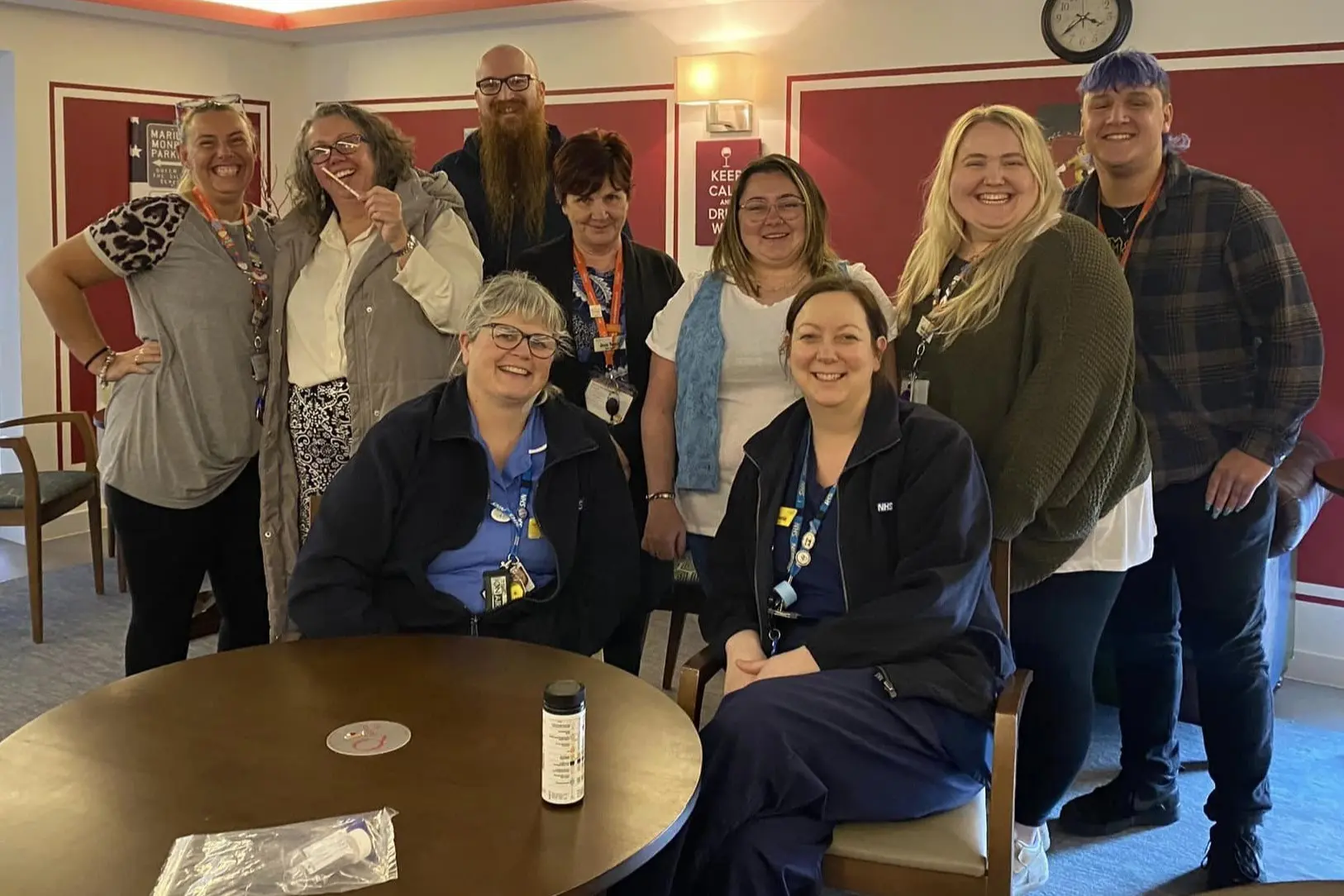A balanced diet is essential for overall well-being, especially in older adults. Proper nutrition plays a crucial role in maintaining health, managing chronic conditions, and improving quality of life. By offering tailored nutritional support, whether provided by professionals or loved ones, we can help older individuals lead happier and healthier lives.
Working with a Multidisciplinary Team
Ensuring Comprehensive Care
At Unique Senior Care, we work with a range of external professionals and organisations, including dietitians, doctors and speech and language therapists (SALT). These experts help us manage modified diets for individuals with conditions such as Parkinson’s disease, stroke, and other neurological disorders that can cause swallowing problems. This collaborative approach makes sure all aspects of a person’s health are covered, creating a care plan that looks at nutritional, medical, and lifestyle needs. By working together, we’re able to make the best decisions for our clients’ well-being.
How You Can Help:
- Communicate regularly with the care team.
- Attend appointments and be involved in discussions about nutritional needs and care plan adjustments.
- Share observations and concerns so the care plan stays effective and responsive to health changes.
By staying engaged and informed, you play a key role in supporting the team’s efforts to provide coordinated and complete care – a partnership crucial for the best health outcomes for your loved one.
Understanding Individual Needs with Nutritional Assessments
Identifying Nutritional Needs
Conducting a thorough nutritional assessment is the first step in understanding dietary requirements. Tools like the Malnutrition Universal Screening Tool (MUST) can help identify risks early, ensuring timely intervention. A thorough evaluation considers various factors such as medical history, lifestyle, stress levels, sleep patterns, and food preferences.
How You Can Help:
- Monitor eating habits and weight changes.
- Keep a food diary to track intake and share it with healthcare providers.
- Regularly check for signs of malnutrition like unexplained weight loss, fatigue, or appetite changes.
- Communicate these observations to the care team.
- If there is a low MUST score, fortify foods with cream, butter, and other high-calorie ingredients to boost nutritional intake.
Our Caregivers support these efforts by also monitoring eating habits, maintaining food diaries, checking for malnutrition signs, and fortifying foods as needed. By understanding, identifying, and addressing specific nutritional needs in collaboration, we can help ensure the proper nutrients are received to maintain health and enhance quality of life.
Promoting Healthy Eating
Tailored Dietary Strategies
We regularly support clients with health conditions such as diabetes, heart disease, dementia, Parkinson’s disease, and other chronic conditions. Individuals living with these conditions often need a specialised diet and may involve collaboration with a dietitian who will consider their medical history, lifestyle, and food preferences.
For those with swallowing difficulties or other specific needs, we also work with speech and language therapists. Our Caregivers support these plans by encouraging healthy eating habits, ensuring proper hydration, and preparing balanced meals suited to individual preferences and abilities.
How You Can Help:
- Collaborate with professionals to understand how best to support your loved one’s nutritional health needs.
- Ensure meals are balanced and include proteins, carbs, healthy fats, vitamins, and minerals.
- Encourage them to drink plenty of water throughout the day.
- Engage in shared mealtimes and get them involved by asking about their favourite foods and incorporating them in a healthy way.
- For those with specific needs, focus on meals that are easy to consume and nutrient-dense. Incorporate finger foods or smoothies if they have difficulty using utensils.
- Support the use of prescribed thickeners and supplements such as Fortisip, a high-calorie nutritional drink designed to help individuals maintain their weight and nutritional intake.
Managing Complex Needs with Specialised Nutritional Support
Addressing Specific Challenges
For individuals with complex needs, such as those requiring PEG feeding, we provide support by collaborating with enteral feeding nurses who train family members and our staff. This ensures specialised training for the team delivering support. Our Caregivers are trained to handle various complex nutritional requirements, ensuring that each person receives care tailored to their specific condition. This includes understanding enteral nutrition, maintaining proper hygiene, and ensuring comfort during feeding times.
How You Can Help:
- Learn about the specific nutritional needs and feeding techniques required.
- Assist with feeding routines, ensuring equipment is clean and functioning properly.
- Pay attention to comfort by positioning correctly during feedings to avoid discomfort.
- Regularly consult healthcare professionals for best practices and care plan updates.
By being proactive and informed about specific nutritional needs, you can significantly enhance their quality of life and ensure the professional care they receive is effective and compassionate.
Supporting Overall Wellbeing with a Holistic Care Approach
Integrating Physical and Mental Health
Our approach includes not just nutritional support but also focuses on physical health, mental well-being, and social engagement. By addressing these interconnected aspects of health, we create a comprehensive care plan that enhances overall quality of life. Activities that promote physical activity, mental stimulation, and social interaction are key to our holistic care approach, fostering a balanced and fulfilling lifestyle for those we care for.
How You Can Help:
- Encourage activities that promote overall well-being, such as light exercises, social activities, and mentally engaging hobbies.
- For physical health, include daily walks, stretching, and gentle yoga.
- For mental well-being, facilitate social interactions through community events or family gatherings.
- Engaging in hobbies like reading, puzzles and crafts provides mental stimulation and a sense of accomplishment.
By integrating these activities into their routine, you create a supportive environment that nurtures physical and mental health, contributing to a holistic approach to care.
The Importance of Good Nutrition and Hydration
Good nutrition and proper hydration are essential for overall well-being, particularly for older adults and those with chronic health conditions. By assessing individual needs, creating personalised nutrition plans, collaborating with healthcare professionals, managing complex nutritional requirements, and supporting physical and mental health, we can greatly improve the quality of life for those we care for.
If your family member needs nutritional support, get in touch to learn more about our personalised and holistic approach. Let’s ensure they receive the best care to lead a healthier, happier life.
With over 40 years of experience in the care industry, providing outstanding care has always been Helena’s core mission.
Helena has been a dedicated member of Unique Senior Care for eight years, starting as Care Manager and advancing to Head of Extra Care and now serving as Director of Operations.
She holds a Level 5 Diploma in Leadership for Health and Social Care and Children and Young People’s Services (England), as well as a Diploma in Welfare Services. Helena has completed various leadership and management courses, enhancing her expertise in the care industry.
Helena has authored published articles, including one for Skills for Care on managing change through the COVID pandemic. She has a steadfast commitment to advocating for and supporting those in need, ensuring their voices are heard and their rights upheld.



